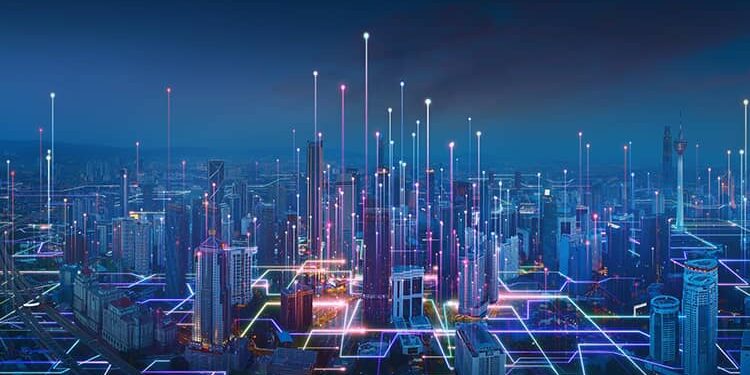Urbanization is an undeniable global phenomenon that demands visionary urban planning to ensure sustainable development and livable spaces for an ever-growing population. As cities expand and evolve, the complexities of urban planning have intensified. In this context, Artificial Intelligence (AI) emerges as a powerful tool that can guide us in designing and implementing urban planning projects that are efficient, resilient, and people-centered. From optimizing transportation networks to predicting resource demands, AI holds the potential to revolutionize the way we shape our cities. This article explores how AI can be harnessed to steer urban planning endeavors toward a more sustainable and harmonious future.
How can AI Guide us to Design Urban Planning Projects
Data-Driven Decision Making
The cornerstone of effective urban planning is data. AI can leverage vast amounts of data from various sources – satellite imagery, sensor networks, social media, and public records – to provide planners with invaluable insights. AI can help make informed decisions about land use, infrastructure development, and resource allocation by analyzing historical trends, population density, traffic patterns, and environmental conditions. For example, AI can predict congestion-prone areas, allowing planners to allocate resources to improve traffic flow and enhance urban mobility.
Smart Infrastructure and Resource Management
AI-powered algorithms can optimize the design and placement of infrastructure, minimizing waste and maximizing efficiency. For instance, AI can analyze energy consumption patterns to identify areas where renewable energy sources, such as solar panels or wind turbines, can be integrated into the urban landscape. Additionally, AI can predict water demand, facilitating the development of water distribution systems that efficiently serve growing populations while conserving this precious resource.
Enhancing Sustainability and Resilience
The concept of a sustainable city extends beyond environmental considerations to encompass economic and social dimensions. AI can assist in designing resilient cities that can withstand various challenges, such as natural disasters and economic downturns. By simulating scenarios and conducting risk assessments, AI can guide planners in crafting disaster-resistant infrastructure and effective emergency response plans. Moreover, AI can contribute to social sustainability by identifying areas needing affordable housing, healthcare facilities, and educational institutions.
Public Engagement and Inclusivity
Inclusive urban planning involves the participation of all stakeholders, including citizens. AI can facilitate public engagement by analyzing feedback from social media, online surveys, and community forums. This enables planners to gain insights into the needs and preferences of residents, thereby ensuring that urban planning projects are aligned with the community’s aspirations. Furthermore, AI can help identify underrepresented groups, ensuring their voices are heard in decision-making.
Optimizing Transportation Networks
One of the most critical aspects of urban planning is transportation. Congestion, pollution, and inefficient transit systems are common challenges in urban areas. AI can revolutionize transportation planning by analyzing real-time data to optimize traffic signals, reduce congestion, and enhance public transportation routes. Predictive modeling can aid in anticipating traffic bottlenecks and suggesting alternative ways, thereby minimizing travel time and emissions.
Balancing Green Spaces and Development
Balancing urban development with green spaces is crucial for creating livable cities. AI can analyze satellite imagery and geographic data to determine optimal locations for parks, green roofs, and urban gardens. By considering factors like air quality, biodiversity, and proximity to residential areas, AI can help planners strike a harmonious balance between built environments and natural ecosystems.
Challenges and Ethical Considerations
While the potential of AI in urban planning is vast, it’s essential to acknowledge the challenges and ethical considerations. Data privacy, algorithm bias, and the potential for AI to exacerbate existing inequalities are real concerns. Striking a balance between data-driven decision-making and human judgment is crucial. Moreover, involving diverse voices in AI model training and implementation is vital to ensure the technology benefits all community members.
As cities grow and evolve, AI presents an unparalleled opportunity to guide urban planning projects toward greater efficiency, sustainability, and resilience. By harnessing the power of AI to analyze data, optimize resources, and engage communities, planners can design cities that are not only functional but also conducive to the well-being of their residents. The synergy between human expertise and AI capabilities has the potential to transform urban planning, making our cities more adaptable, inclusive, and environmentally conscious. To navigate the complexities of urbanization, embracing AI as a guiding partner is not just a choice – it’s a necessity.












Discussion about this post